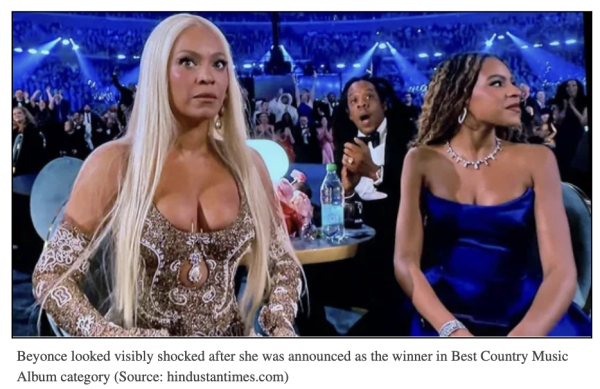Ticketmaster Chaos: Can the US Government Intervene?
Imagine you’re a Taylor Swift fan, getting ready to buy tickets to The Eras Tour. You’ve been waiting for what seems like forever, but before you can click “purchase,” Ticketmaster crashes and you lose your ticket to a bot, and ultimately any chance of buying one.
Taylor Swift’s The Eras Tour presale collapsed last November on Ticketmaster – a popular platform used for the sale of tickets in America – due to high demand and a flood of bots. This left fans ticketless and upset because they might not hear Swift’s greatest hits performed live.
On January 24, 2023, politicians from both parties were quoting Swift’s lyrics at a Senate Judiciary hearing criticizing the disastrous sale of Taylor Swift concert tickets. The Senate even accused Ticketmaster of being a monopoly that hurt consumers and edged out competition.
Let’s rewind. On November 1st, 2022, Taylor Swift announced her upcoming tour, The Eras Tour. Shortly after, codes for Ticketmaster’s verified fan system – intended to eliminate speculators and bots in favor of those who are real fans – were distributed. The 1.5 million fans selected for this system had the ability to wait early in the long queue for tickets on November 15. In the first few minutes, some lucky fans were able to get tickets. Then, the chaos began.
Millions of fans were locked out of the system. Ticketmaster said that it received 3.5 billion system requests on Tuesday and 2 million tickets were sold that day alone.
After Ticketmaster canceled the general sale scheduled for that Friday because there were no remaining tickets to buy, ticket sales moved to scalping websites like StubHub for up to ten thousand dollars more than the original sale price.
The level of outrage reached the United States Senate, and even President Biden. Some senators were upset about a seeming monopoly, others dismayed that their own children were locked out of tickets. Whatever the reason, the Senate decided to hold a hearing. The hearing was intended to raise public awareness, to find data for the Justice Department, and to persuade senators to think about legislative possibilities for limiting the monopoly of Ticketmaster. Senator Amy Klobuchar of Minnesota ended the hearing saying that “the solutions are there for the taking.”
But not many know that the Taylor Swift crisis is just one of the many controversies Ticketmaster has been mired in. Live Nation, the owner of Ticketmaster, is the subject of an alleged antitrust investigation by the Justice department that began before the most recent scandals with Taylor Swift concert tickets.
Ticketmaster is also currently facing two lawsuits from Swift’s fans who accuse the company of misrepresentation, fraud, and more.
So here we have it. Will the government follow through with looking into changes at monopolies like Ticketmaster and the cascading effects and dramas that ensue for multitudes of fans around the world? At this point, all the fans can do is advocate for changes and hope for the best.
In case you were curious, these are the Taylor Swift lyrics that were quoted throughout the hearing:
“Ticketmaster ought to look in the mirror and say: ‘I’m the problem. It’s me,’”
—Senator Richard Blumenthal of Connecticut talking about the Ticketmaster debacle.
“A nightmare dressed like a daydream, I have to throw out, in deference to my daughter Eliza, one more Taylor Swift quote. Karma’s a relaxing thought; aren’t you envious that for you it’s not?”
—Senator Mike Lee of Utah, describing the limitations of ticket resale.
“To have a strong capitalist system, you have to have competition, you can’t have too much consolidation. Something that, unfortunately for this country, as an ode to Taylor Swift, we know ‘all too well’”
—Senator Amy Klobuchar of Minnesota, quoting a song from Swift’s album Red.
“Those representing the dominant player in the market would contend that their growth has allowed them to innovate and make advances that greatly benefit consumers. A few million Taylor Swift fans would respond, ‘This is why we can’t have nice things,”
—Sal Nuzzo, the Senior Vice President at the James Madison Institute.

Hi! I’m Anabelle, I’m a junior and this is my second year in the UNISVerse. I love reading, playing piano, and writing feature articles for the paper!










